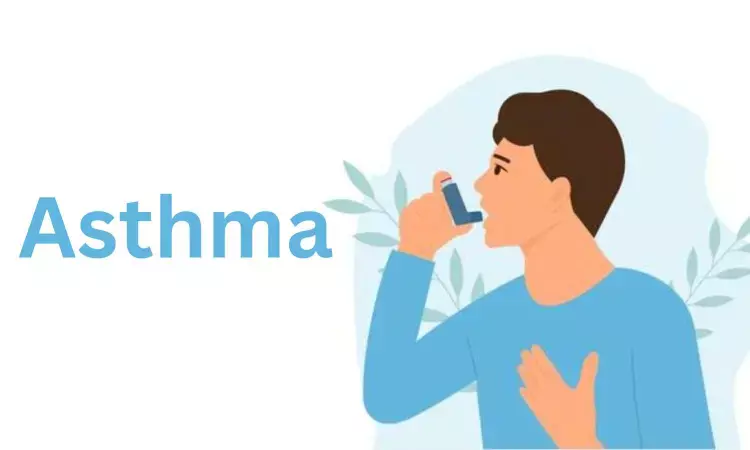- Home
- Medical news & Guidelines
- Anesthesiology
- Cardiology and CTVS
- Critical Care
- Dentistry
- Dermatology
- Diabetes and Endocrinology
- ENT
- Gastroenterology
- Medicine
- Nephrology
- Neurology
- Obstretics-Gynaecology
- Oncology
- Ophthalmology
- Orthopaedics
- Pediatrics-Neonatology
- Psychiatry
- Pulmonology
- Radiology
- Surgery
- Urology
- Laboratory Medicine
- Diet
- Nursing
- Paramedical
- Physiotherapy
- Health news
- Fact Check
- Bone Health Fact Check
- Brain Health Fact Check
- Cancer Related Fact Check
- Child Care Fact Check
- Dental and oral health fact check
- Diabetes and metabolic health fact check
- Diet and Nutrition Fact Check
- Eye and ENT Care Fact Check
- Fitness fact check
- Gut health fact check
- Heart health fact check
- Kidney health fact check
- Medical education fact check
- Men's health fact check
- Respiratory fact check
- Skin and hair care fact check
- Vaccine and Immunization fact check
- Women's health fact check
- AYUSH
- State News
- Andaman and Nicobar Islands
- Andhra Pradesh
- Arunachal Pradesh
- Assam
- Bihar
- Chandigarh
- Chattisgarh
- Dadra and Nagar Haveli
- Daman and Diu
- Delhi
- Goa
- Gujarat
- Haryana
- Himachal Pradesh
- Jammu & Kashmir
- Jharkhand
- Karnataka
- Kerala
- Ladakh
- Lakshadweep
- Madhya Pradesh
- Maharashtra
- Manipur
- Meghalaya
- Mizoram
- Nagaland
- Odisha
- Puducherry
- Punjab
- Rajasthan
- Sikkim
- Tamil Nadu
- Telangana
- Tripura
- Uttar Pradesh
- Uttrakhand
- West Bengal
- Medical Education
- Industry
Metformin Effective in Reducing Exacerbations in Young Asthma Patients: Study

A recent study published in the Pediatric Pulmonology analyzed the commonly used antidiabetes medication metformin and found potential benefits in reducing asthma exacerbations among the adolescents and young adults. Metformin is known for its anti-inflammatory and antioxidative properties which was previously associated with reduced risks of asthma-related hospitalizations in adults. This study by Erhan Ararat and team evaluated the impact of metformin on younger patients with asthma.
The research utilized secondary data from the Arkansas All Payers Claim Database and the Arkansas School Body Mass Index (BMI) database. This comprehensive study included a total of 464 patients of 12 to 20 years who were diagnosed with asthma and prescribed metformin. The primary objective of this study was to assess the change in annualized asthma exacerbation rates following the prescription of metformin and to determine if these changes were related to how well patients adhered to the prescribed medication regimen.
The findings revealed a significant decrease in outpatient asthma exacerbation rates post-metformin prescription. The exacerbation rate dropped from 13.4% before metformin use to 7.8% after its prescription with a p-value of .009 which indicates statistical significance. Also, the study found that the reduction in annualized asthma exacerbation rates was observed more in patients who adhered strictly to their metformin prescription (rank correlation coefficient r = −.165, p < .001).
To ensure the robustness of the results, the research was adjusted for potential confounding factors, including age, sex, BMI and the use of inhaled corticosteroids. Although this adjustment attenuated the strength of the association between metformin use and reduced asthma exacerbations, the overall trend remained clear.
The study strongly suggested that metformin prescription was associated with a reduction in asthma exacerbation rates among adolescents and young adults. The outcomes emphasized the need for larger studies that include a broader patient population by including those with asthma who have not been prescribed metformin. Such studies are essential to confirm whether the observed reduction in asthma exacerbations are directly attributable to metformin use.
This research adds to the growing body of evidence that suggests the benefits of metformin which may extend beyond diabetes management. Based on the future studies and additional findings, metformin could become a valuable addition to asthma treatment protocols for patients who undergo frequent exacerbations. Overall, this study offers a potential option to effectively manage asthma symptoms and reduce the frequency of exacerbations in young asthma patients.
Reference:
Ararat, E., Landes, R. D., Forno, E., Tas, E., & Perry, T. T. (2023). Metformin use is associated with decreased asthma exacerbations in adolescents and young adults. In Pediatric Pulmonology (Vol. 59, Issue 1, pp. 48–54). Wiley. https://doi.org/10.1002/ppul.26704
Neuroscience Masters graduate
Jacinthlyn Sylvia, a Neuroscience Master's graduate from Chennai has worked extensively in deciphering the neurobiology of cognition and motor control in aging. She also has spread-out exposure to Neurosurgery from her Bachelor’s. She is currently involved in active Neuro-Oncology research. She is an upcoming neuroscientist with a fiery passion for writing. Her news cover at Medical Dialogues feature recent discoveries and updates from the healthcare and biomedical research fields. She can be reached at editorial@medicaldialogues.in
Dr Kamal Kant Kohli-MBBS, DTCD- a chest specialist with more than 30 years of practice and a flair for writing clinical articles, Dr Kamal Kant Kohli joined Medical Dialogues as a Chief Editor of Medical News. Besides writing articles, as an editor, he proofreads and verifies all the medical content published on Medical Dialogues including those coming from journals, studies,medical conferences,guidelines etc. Email: drkohli@medicaldialogues.in. Contact no. 011-43720751


